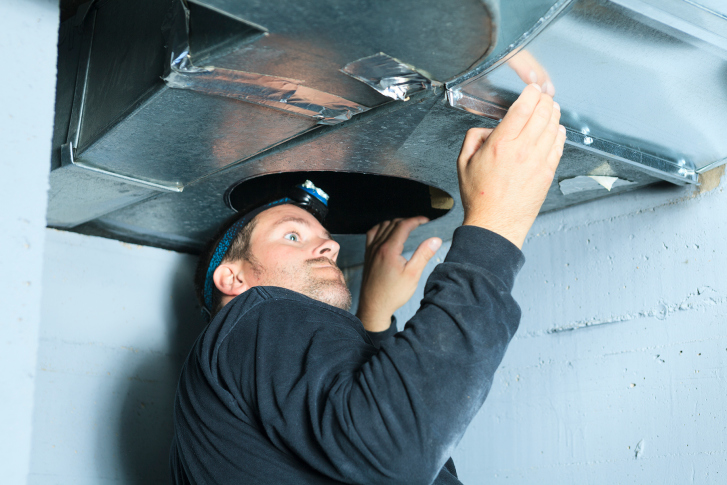 When it comes to selling a home, it is a common belief that once the offer is accepted, there is nothing else to be negotiated. However, issues and obstacles that can arise during the home inspection can be a cause for discussion with the seller. Whether you’re currently searching for houses or your offer has already been accepted and you’re preparing for the next step, here are some tips in the event that the home inspection isn’t up to par.
When it comes to selling a home, it is a common belief that once the offer is accepted, there is nothing else to be negotiated. However, issues and obstacles that can arise during the home inspection can be a cause for discussion with the seller. Whether you’re currently searching for houses or your offer has already been accepted and you’re preparing for the next step, here are some tips in the event that the home inspection isn’t up to par.
Be Cautious About What You Say
Without a doubt, anything that you discuss with the real estate agent regarding the property you’re looking at is going to be addressed with the seller. Instead of telling the agent everything is fine and dandy, maintain a poker face with any deficiencies in the home so you can assess them after the inspection. While a seller may think they have you on the line if all seems fine during the inspection, maintaining your peace and negotiating after the fact may end up providing a better post-inspection deal for you.
Decide What Deficiencies Are Most Important
Before negotiating any repairs or defects with the seller and how this can benefit you, ensure you prioritize what deficiencies must be fixed and what you can live without. There may be leaks and small dings in cupboards that may not be much of an issue, whereas damage in a hardwood floor that you don’t want to renovate may serve as a deal breaker. Deciding what is most important will ensure that the seller knows you’re really interested, and it will likely convince them that the fixes will make for a successful sale.
Request A Credit For Repairs
If a seller knows you’re interested in a home, you may be able to get a little bit of leeway in terms of what you can negotiate following the inspection. Instead of expecting them to deal with the hurdles of home repair, ask the seller to consider a credit so that you can ensure the repairs are completed on your own. This will not only enable you to have the repairs completed the way you would like them done, it may also make the moving process a smoother transition for all of you.
There are certain deficiencies that can show up during the home inspection, so it’s important to consider how re-negotiation can benefit both the buyer and the seller. If you’re curious about home inspections and other aspects of purchasing a home, you may want to contact your local real estate agent for more information.
 With all of the care and consideration that can go into deciding if a home is the right fit, it can add a wrench to the mix to realize that you may not have a lot of time to put in an offer. It’s certainly important to weigh all of the factors of buying a home before deciding to put yourself in the ring, but here is why you’ll want to come to a conclusion quickly when it comes to a home you love.
With all of the care and consideration that can go into deciding if a home is the right fit, it can add a wrench to the mix to realize that you may not have a lot of time to put in an offer. It’s certainly important to weigh all of the factors of buying a home before deciding to put yourself in the ring, but here is why you’ll want to come to a conclusion quickly when it comes to a home you love. Starter homes are incredibly popular for young couples who plan to have a family in the future but don’t need a large place yet.
Starter homes are incredibly popular for young couples who plan to have a family in the future but don’t need a large place yet. One of the stresses of moving to a new area is giving up the familiarity that you have with your old neighbors and starting from scratch. Whether you’ve just moved to a different locale or you’re planning to relocate in the near future, there are some easy ways that you can make a home of your new neighborhood right from the start.
One of the stresses of moving to a new area is giving up the familiarity that you have with your old neighbors and starting from scratch. Whether you’ve just moved to a different locale or you’re planning to relocate in the near future, there are some easy ways that you can make a home of your new neighborhood right from the start. If you’ve been searching the real estate market for a while and you’ve finally come across a home that you love, it’s possible you may be ready to pounce at any price. However, if you’re hoping to bring the seller’s price down for a deal that’s closer to what you want to spend, here are some ways you may be able to have your home and pay the right price too.
If you’ve been searching the real estate market for a while and you’ve finally come across a home that you love, it’s possible you may be ready to pounce at any price. However, if you’re hoping to bring the seller’s price down for a deal that’s closer to what you want to spend, here are some ways you may be able to have your home and pay the right price too. The decision to invest in real estate can be one rife with risk, but if you’re ready to take this type of step into the investment market, you might be wondering where to begin. While upcoming neighborhoods and university areas may always be a place where investment is a viable idea, here are some reasons it can be a boon to consider a resort condo.
The decision to invest in real estate can be one rife with risk, but if you’re ready to take this type of step into the investment market, you might be wondering where to begin. While upcoming neighborhoods and university areas may always be a place where investment is a viable idea, here are some reasons it can be a boon to consider a resort condo.